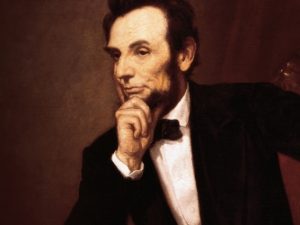Two hundred nine years ago, Thomas and Nancy Lincoln welcomed a little boy into their lives. Little Abraham came into the world and went on to become the 16th president of the United States of America.
I thought I would take a brief look on Little Abe’s birthday to ponder the question that has befuddled many of us today: What has become of the Party of Lincoln?
President Lincoln was elected in 1860 and re-elected in 1864. The Civil War darkened his presidency. He vowed to preserve the Union, which split apart when the Confederate States of America went to war with the United States of America.
The Party of Lincoln became known as the party that sought equality for all Americans. It strove for unity. It became the party that fought against the enslavement of black Americans. President Lincoln embodied that righteous cause.
A century after the end of the Civil War, another president — Lyndon Baines Johnson of Texas — fought to enact the Voting Rights Act and the Civil Rights Act. He needed congressional Republicans to counteract the resistance he was getting from his fellow Southern Democrats who opposed both landmark pieces of legislation.
In the 50 years since LBJ’s time, the parties’ roles have reversed. Johnson predicted that the civil rights legislation would cost Democrats the South — and it has. Republicans now are the dominant party south of the Mason-Dixon Line and the GOP — not the Democrats — is now perceived by many to be the party of those opposed to the cause of civil rights.
One of the more stunning examples of that role reversal arguably occurred this past year when the current president, Republican Donald J. Trump, proclaimed that there was blame to go around on “many sides” in the riot that erupted in Charlottesville, Va. White supremacists, neo-Nazis and Ku Klux Klansmen rioted to protest the taking down of a statue of Confederate Gen. Robert E. Lee.
The president’s response was breathtaking when he said there were “many fine people — on both sides” of the dispute. Yes, the president called Klansmen, Nazis and white supremacists “fine people.”
The Republican Party once branded itself as the Party of Lincoln, largely on its history of seeking equality for all Americans and for its intolerance of racial hatred.
Wherever he is, President Lincoln is an unhappy man.
If only we could bring Honest Abe back from the great beyond to scold his political descendants on the degradation they have heaped on the party that once bore his name.
